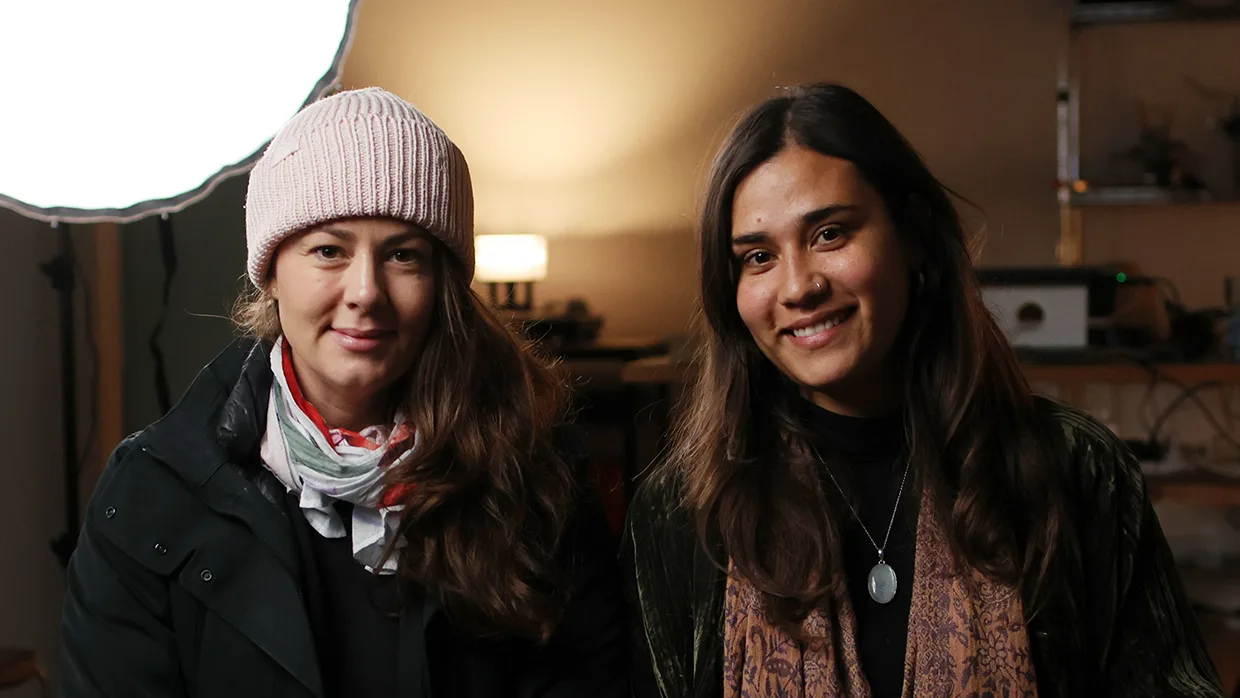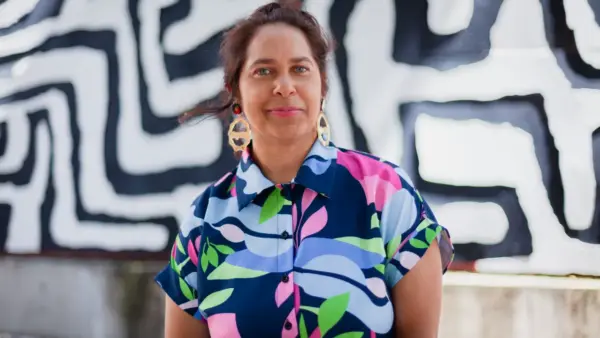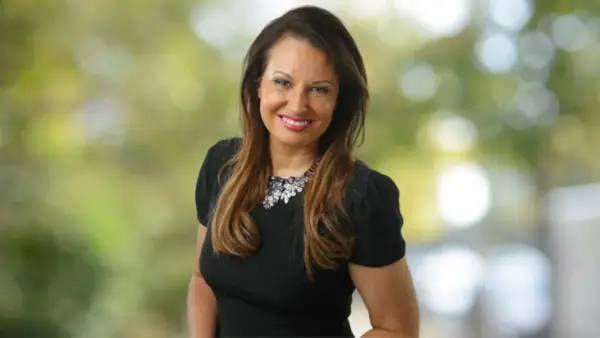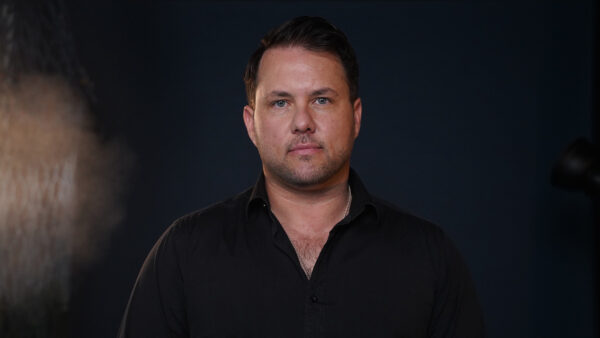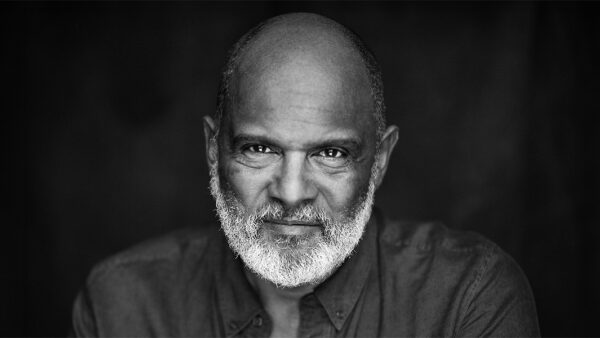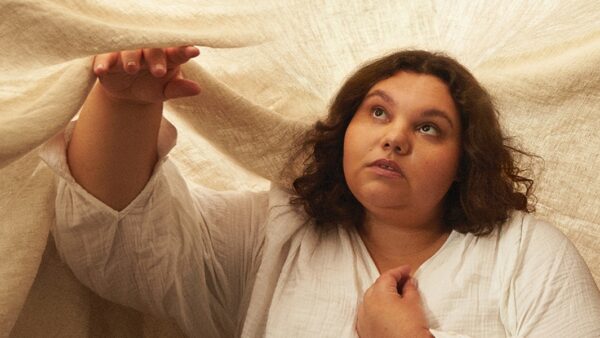Shari Hutchison is a Nyikina woman from the Kimberley region of Western Australia. She chatted to Screenwest about authentic storytelling, the mentorships she’s received throughout her career and her tips for emerging First Nations filmmakers.
Working in both above-the-line and below-the-line roles, Shari is passionate about contributing to more positive and impactful First Nations stories on screen.
Over the last decade, she has worked her way up in the production department, moving from production coordinator to production manager on SBS/NITV series Family Rules Season 3, Our Law Season 2 and the upcoming Our Medicine.
In 2023, Shari launched production company Kirri Media, producing her first short documentary Tee Ken Ng for ABC Arts. The film has screened at festivals around the world and was nominated for Best Short Form Documentary at the 2024 AIDC Awards.
Shari also produced and co-wrote upcoming short documentary Re-imagining Our Futures, which follows the journey of Nyikina & Jabirr Jabirr woman Kalinda Palmer as she learns about traditional birthing practices from her Elders so she can re-imagine a future for herself, her family and community.

How did you get started in the screen industry?
I began my journey in the screen industry at Curtin University, where I completed a Bachelor of Arts in Humanities, majoring in Journalism and Screen Arts. It was during my studies that I discovered my passion for filmmaking and realised that producing was the path I wanted to pursue.
While at university, I gained valuable hands-on experience through a couple of small internships, which helped me develop my skills and build industry connections. After graduating, I met Kelrick Martin, then the Head of the Indigenous Department at Screenwest. Through this connection, I became part of the supportive community of Western Australian Indigenous Filmmakers.
One of the pivotal moments in my career came when I secured a producer’s attachment on Black Comedy Season 3. This opportunity led me to Sydney, where I worked alongside the talented Kath Shelper, gaining invaluable experience and insight into the production process. This experience solidified my commitment to producing and set the foundation for my career in the screen industry.
Can you tell us about the kinds of stories you’re passionate about telling?
I have always been drawn to documentary filmmaking because it allows me to connect with real people and share their authentic stories. I’m passionate about using film as a platform to amplify voices within the community that deserve to be heard. For me, storytelling is about creating a lasting impact that extends beyond the life of the film itself. I’m particularly focused on sharing stories that celebrate culture, art, and the environment—stories that can inspire meaningful change and foster deeper understanding.

You’ve learnt the ropes in the production department, working your way up to production manager – and now producer – on documentary series like Our Law Series 2 and upcoming Our Medicine. How important have mentorships and attachments been in your career?
I’ve worked hard to build a solid foundation in the industry, gaining as much experience as possible to confidently progress in my career. However, the guidance and support I’ve received from others have been invaluable, and I’m grateful to those who’ve shared their knowledge and expertise. One of my first opportunities was as a coordinator on Family Rules Season 2, working with Karla Hart and Renee Kennedy. Their trust allowed me to step into bigger roles, including Production Manager and Assistant Producer for the next season. These experiences taught me so much, and I’m incredibly thankful for their faith in me.
I’ve also had the chance to work with many producers, each with their own unique style, and I’ve learned something valuable from every project. Devina McPherson’s support during her time at Screenwest has had a strong impact on my journey, as has the encouragement from WA’s First Nations film community. Leaders like Karla Hart, Taryne Laffar, Jodie Bell, and Jub Clerc exemplify collaboration and lifting others up, which I admire deeply. These relationships have shaped my approach to storytelling. I hope to give back as much as I’ve received by supporting and encouraging emerging talent, continuing the cycle of growth and empowerment.
You’ve formed your own production company, Kirri Media, under which you’ve produced two short documentaries – Tee Ken Ng for ABC and the upcoming Re-imagining Our Futures for Network 10. Can you tell us about your current slate of projects?
Through my production company, Kirri Media, I am developing a range of projects that explore themes that are deeply important and meaningful to me. Re-imagining Our Futures, a short film that will be available on 10 Play next year, serves as the foundation of a much larger concept. This project seeks to reimagine futures through the voices of young First Nations people, exploring how they envision their lives beyond Western systems, with the goal of inspiring new ways of thinking and sparking important conversations.
Alongside this, I am developing a variety of other projects that explore themes such as health, birthing, identity, culture, connection to country, and cultural resilience. Each project is at a different stage of development, but together they reflect my commitment to creating impactful narratives. It’s an exciting time as these ideas grow and evolve!

What are your top tips for emerging First Nations filmmakers looking to get started in the screen industry?
For emerging First Nations filmmakers, my biggest piece of advice is to connect and build relationships within the industry. Reach out to other First Nations creatives and take advantage of programs and mentorship opportunities designed to support our voices. The screen industry thrives on collaboration, and building a strong network will open doors and create opportunities for growth.
Stay true to your perspective and tell the stories that matter to you. Authenticity is what makes our way of storytelling so powerful, so lean into that. Gain the experience you need to feel confident in your abilities. Be persistent, patient, and open to learning, knowing that every step forward is part of your journey. Most importantly, trust in the value of your voice and the impact your stories can have.
What are you watching right now?
Right now, I’m revisiting some of my favorite Studio Ghibli films – there’s something timeless about their blend of artistry, storytelling, and heart! I’m also eagerly anticipating LIFEBLOOD, the documentary about the Martuwarra (Fitzroy) River, an ancestral being and lifeforce that flows through my country in the Kimberley, sustaining life and culture. Another project I’m excited to see is Our Medicine, the documentary series I worked on, which highlights the inspiring work of First Nations professionals and communities reclaiming control over Indigenous health.
Where is your favorite place in Western Australia and why?
Living in Walyalup (Fremantle, WA), the South West is a perfect escape – it’s so close, full of natural beauty, and a place I love to visit as often as I can. That said, there’s something truly magical about traveling north and returning to the Kimberley. As a Nyikina woman, the Kimberley holds a deeply special place in my heart and soul, my liyan.
Re-imagining Our Futures will be released on 10 Play and Network 10’s social media channels next year. Tee Ken Ng is available to view on ABC iview within Australia.
